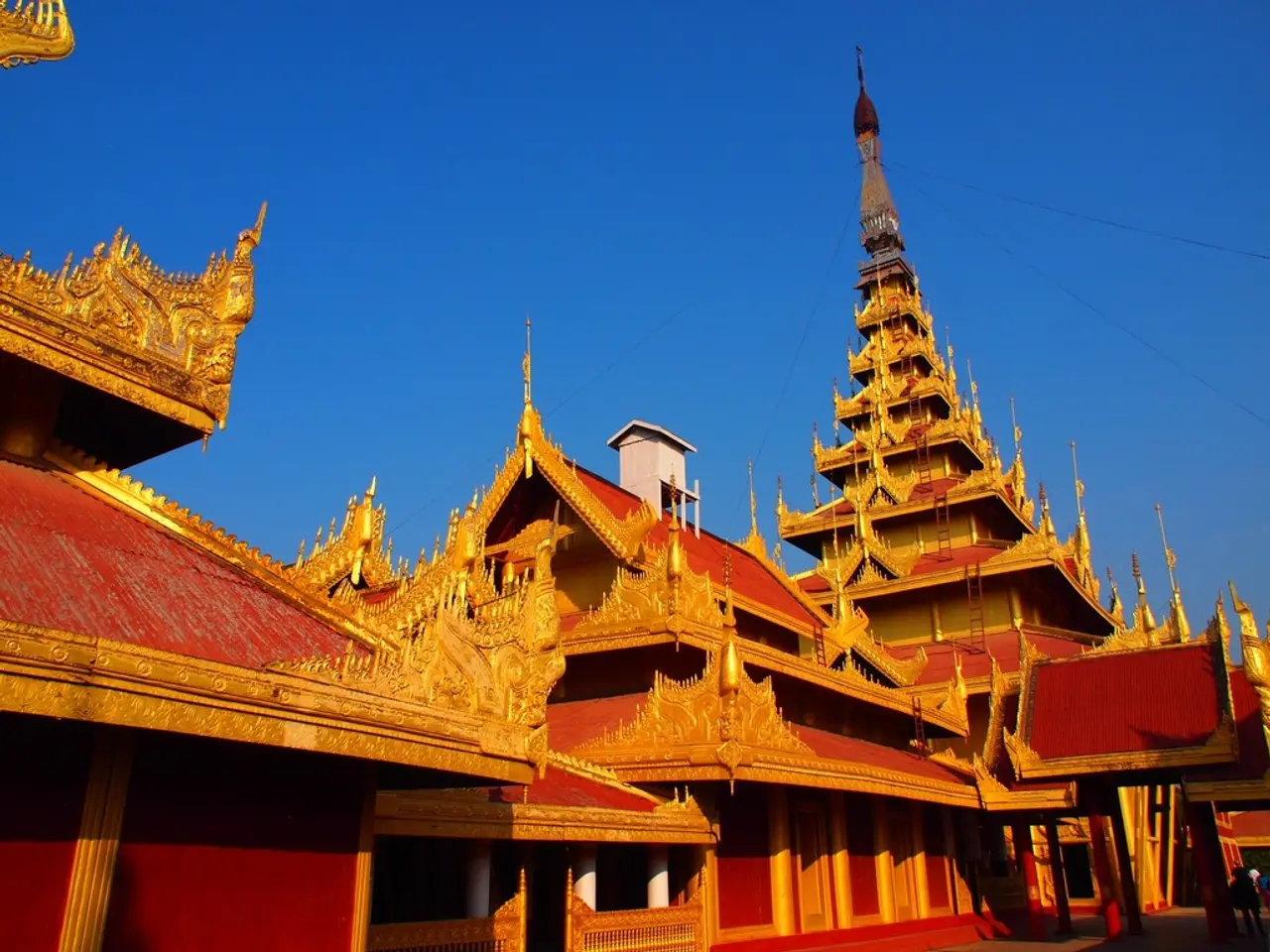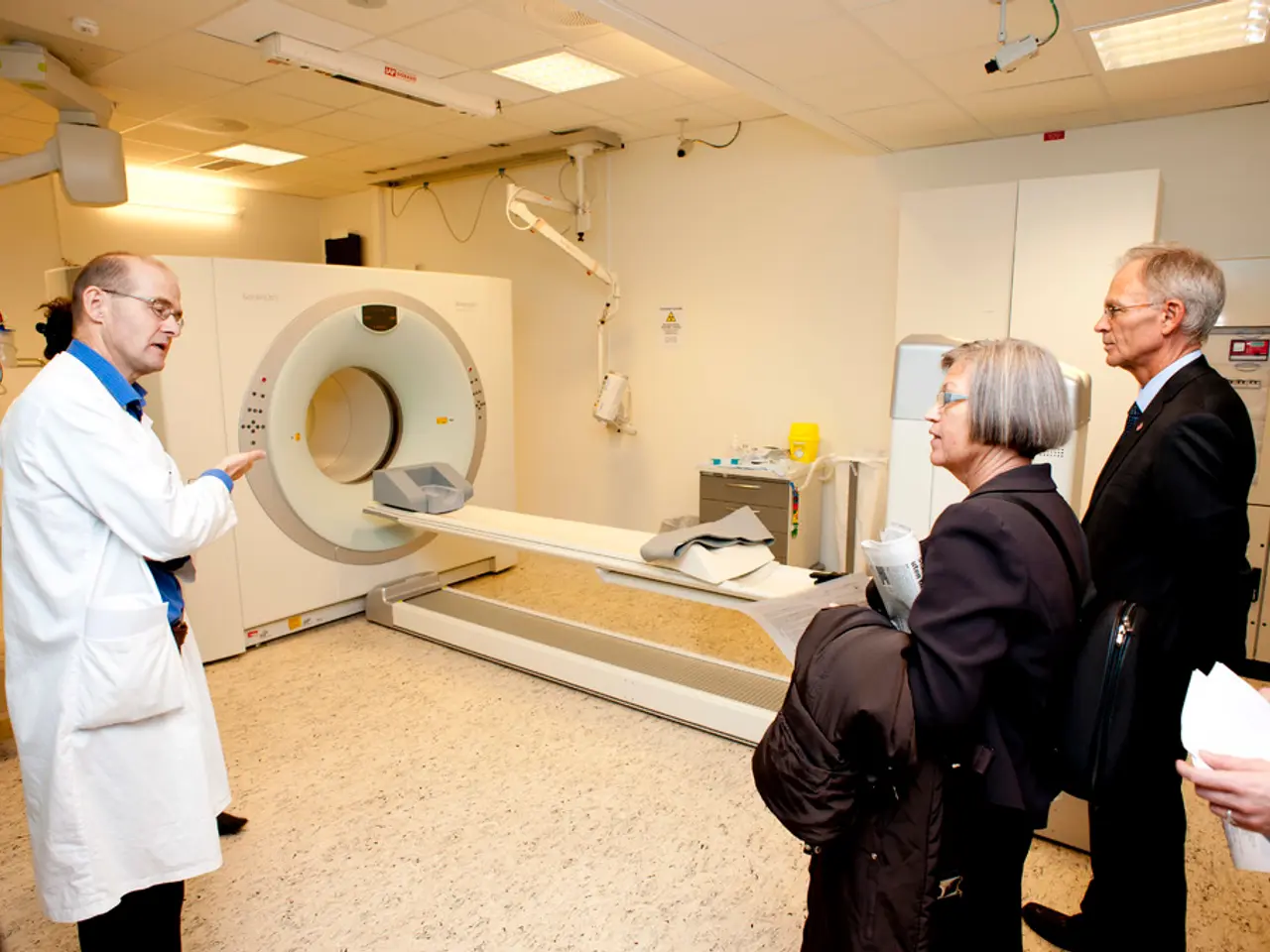Commemorating the anniversary of the revolution, Bangladesh's Yunus advocates for reform
Yunus Leads Bangladesh's Caretaker Government in Pursuit of Democracy
Muhammad Yunus, the Nobel Peace Prize laureate, has taken on the role of Chief Adviser of Bangladesh's interim caretaker government. This appointment came following a mass uprising that led to the resignation and exile of Prime Minister Sheikh Hasina in August 2024 [2][3][4].
The uprising, initially sparked by controversy over government job quotas, quickly expanded into a broader anti-government protest movement [2][5]. Thousands stormed Hasina's palace on August 5, 2024, as she escaped by helicopter during the protests [2]. The Army Chief presented Hasina's resignation to the President, who then dissolved parliament [2].
Yunus was chosen by student leaders and protest coordinators who led the August 2024 movement against Hasina's administration. His role is to oversee fundamental reforms aimed at restoring democracy and to supervise free and fair national elections scheduled for February 2026 [2][5].
The political landscape in Bangladesh is currently marked by ongoing discussions among political parties and stakeholders on necessary reforms, including the political and electoral systems [1]. Yunus addressed a crowd outside parliament, standing in the rain, and issued a proclamation alongside leaders of key political parties [6]. The proclamation, to be added to the country's constitution, acknowledges the people's uprising and their desire for good governance, fair elections, rule of law, economic and social justice, and democratic reforms [7].
Yunus has pledged to overhaul democratic institutions in Bangladesh, following Hasina's rule of widespread human rights abuses. He has also urged for prayers for a fair and smooth election in Bangladesh [8]. Fariha Tamanna, a 25-year-old who traveled to Dhaka, found it deeply satisfying to hear the government acknowledge the uprising [9].
The elections in Bangladesh, a South Asian nation with a population of approximately 170 million, are scheduled to be held in February 2026. Yunus has agreed to write to the election commission asking for elections to be held before the Muslim holy month of Ramadan begins in late February [5].
However, the path to democratic governance is not without challenges. The fallen autocrats and their self-serving allies are conspiring to derail progress in Bangladesh, as per Muhammad Yunus [10]. An elusive deal on preventing a return to authoritarian rule remains a significant hurdle in the process of reestablishing democratic governance after years of autocratic rule [11].
Despite these challenges, Yunus has called for the people to remember the sacrifices made last year and to work together to build a Bangladesh where tyranny will never rise again [7]. He considers the thousands of sacrifices made during the uprising as a rare opportunity for national reform [12].
In conclusion, Yunus serves as the neutral leader of Bangladesh's caretaker government following a popular uprising that ousted Sheikh Hasina. His administration's chief task is to implement reforms and conduct fair elections by February 2026 under the revived caretaker system to reestablish democratic governance after years of autocratic rule [1][2][3][5].
- Muhammad Yunus, in his role as the Chief Adviser of Bangladesh's caretaker government, has emphasized the importance of upholding human rights and ensuring justice, citing Yunus's pledge to overhaul democratic institutions that had been subject to widespread human rights abuses under the previous administration.
- The caretaker government, led by Yunus, has focused on policy and legislation reforms, with one of the key objectives being the restoration of democracy and the guarantee of fair elections, a discourse that is actively engaged in by various political parties and stakeholders in Bangladesh.
- As part of the ongoing efforts, Yunus has voiced his support for international initiatives promoting peace and diplomacy in war-and-conflicts zones, and has pleded to ensure that Bangladesh, in its capacity as a democratic nation, plays a proactive role in upholding human rights and general news relating to these issues on the global stage.
- Addressing the general public, Yunus has urged for unity and cooperation as the nation navigates through the challenges of reestablishing democratic governance, emphasizing the need for collective effort to build a Bangladesh that upholds democracy, human rights, and integrity in its political landscape.





